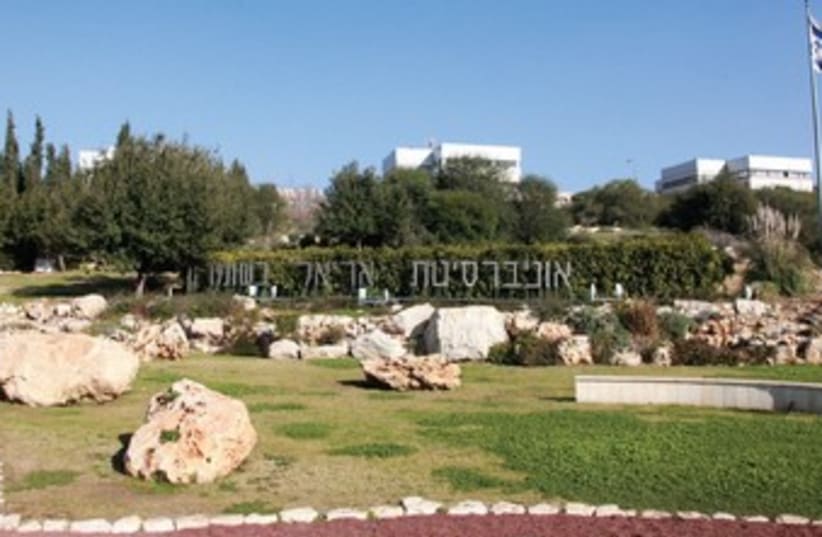Germany is seeking to formally clarify its long-standing policy of not funding Israeli institutions and business over the pre-1967 lines into two existing agreements with Israel with regard to science and trade.
The move to clarify the language in these two legal agreements with Israel comes amidst growing calls in Europe to take harsher measures against West Bank settlements.In 2012, the European Union Foreign Council tightened its loopholes against support for Israeli enterprises over the Green Line and inserted language into new documents setting out its policy.
On Thursday at the World Economic Forum in Davos, Prime Minister Binyamin Netanyahu warned Europe that such steps were harmful to the peace process.“If Europe is seen to be one sided, unfairly pressing on Israel, then it hardens the Palestinian position and it hardens the Israeli position because people respond that way to these undue pressure,” said Netanyahu.Territorial language had already been inserted into the EU agreement for Israel to join its Horizon 2020 program, which distributes 80 billion euros in funding for research and innovation programs among participating nations.Germany now wants to place territorial language into two agreements between its Science Ministry and its Israeli counterpart for research grants and with Israel’s Economy and Trade Ministry for funding for businesses. This language would be used when tenders are issued for new projects under these agreements.The need to clarify the terms of the agreement came about in part because last year Israel accredited its first institution of higher learning in a West Bank settlement, Ariel University, which cannot participate in EU programs. All other accredited Israeli universities are located within the pre-1967 lines.“This is an expression of the German government’s international-law position and will also be the case in the future,” a German official said.“The intense and successful scientific cooperation between Israel and Germany has – in mutual understanding – always been restricted to partners inside Israel within the ‘67 lines,” the official said.“Germany has great interest in continuing and expanding the scientific cooperation with Israel. For both sides, there is great future potential in this. We are in close talks with our Israeli partners on this,” the official said.But an Israeli official said that news reports had blown the issue out of proportion, and that Germany and always been clear on its policy with regard to Israeli territory over the pre-1967 lines.“Germany has since 1986, included in the partnership agreement a territorial clause. Never has there been any German funding to projects in the Green Line this is not something that was inspired by the EU commission’s guideline, this is the same old Germany policy,” the official said.With regard to institutions of higher learning ,Germany funds only accredited universities, the official said. “Now, since Ariel University is accredited, they have included a clause recognizing only those institutions within the Green Line,” the official said.The Finance Ministry to is analyze the impact of the international community’s increasing measures against West Bank settlements, sources said.Left-wing politicians on Thursday warned that steps such as these are warning signs of Israel’s growing isolation as a result of its continued support for West Bank settlements and its failure to reach a peace deal with the Palestinians.“The increasing pressure from Europe shows that the government’s settlement policy carries a high economic prices,” MK Nachman Shai (Labor) said. “Israel, as usual, acts like an ostrich and ignores the warning signs.”Meretz Party Zahava Gal-On charged that Netanyahu was continuing to ignored the warning signs and “continued to party as if he was on the Titanic.”But Construction and Housing Minister Uri Ariel told Army Radio that he believed Israel could weather the storm against it with respect to international sanctions against settlements.He likened boycotts against settlements to the old Arab boycott leveled against Israel decades ago.